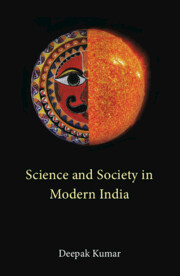5 - Medical Knowledge and Public Health
Published online by Cambridge University Press: 23 May 2023
Summary
To our national shame be it said that few, very few of the wonderful advances in the science of the healing art which have signalized recent years have been made by our country men. Even in tropical disease Frenchmen, Italians, Germans, Americans and even Japanese, are shooting ahead of us. We have to get a Koch to find for us the Cholera germ and a Haffkine to protect us from it, a Laveran to teach us what malaria is, a Kitisato to show us the germ of plague and a Yersin or a Haffkine to cure us of its effects.
—Patrick MansonLight comes from the East, but the light of medical science comes from the West. But our India ever ready to absorb the light from other sources, sometimes reflects but seldom radiates. In the domain of pure science under more favourable circumstances, we see already a radiant glow. In the science of medicine, if circumstances had favoured who knows we might not have had similar results. Each country is contributing its share to the common stock of medical knowledge but we have none to offer. We want a Professor Koch from Germany to tell us the cause of Asiatic cholera, and we are waiting for some other professor from somewhere else to find a cure for it.
—M. N. Banerjee at the Calcutta Session of the Indian National Congress in December 1901.Western medical ideas and practices occupied an extremely important place in the colonization of India. Western medicine functioned in several ways: as an instrument of control which would swing between coercion and persuasion as exigencies demanded, and as a site for interaction and often resistance. In its former role, it served the state and helped ensure complete dominance. The doctors who accompanied every naval dispatch from Europe emerged as powerful interlocutors (for both political and cultural purposes). They not only looked after the sick on ship and on land, but were also the first to report on the flora, fauna, resources, and cultural practices of the new territory.
- Type
- Chapter
- Information
- Science and Society in Modern India , pp. 89 - 116Publisher: Cambridge University PressPrint publication year: 2023



